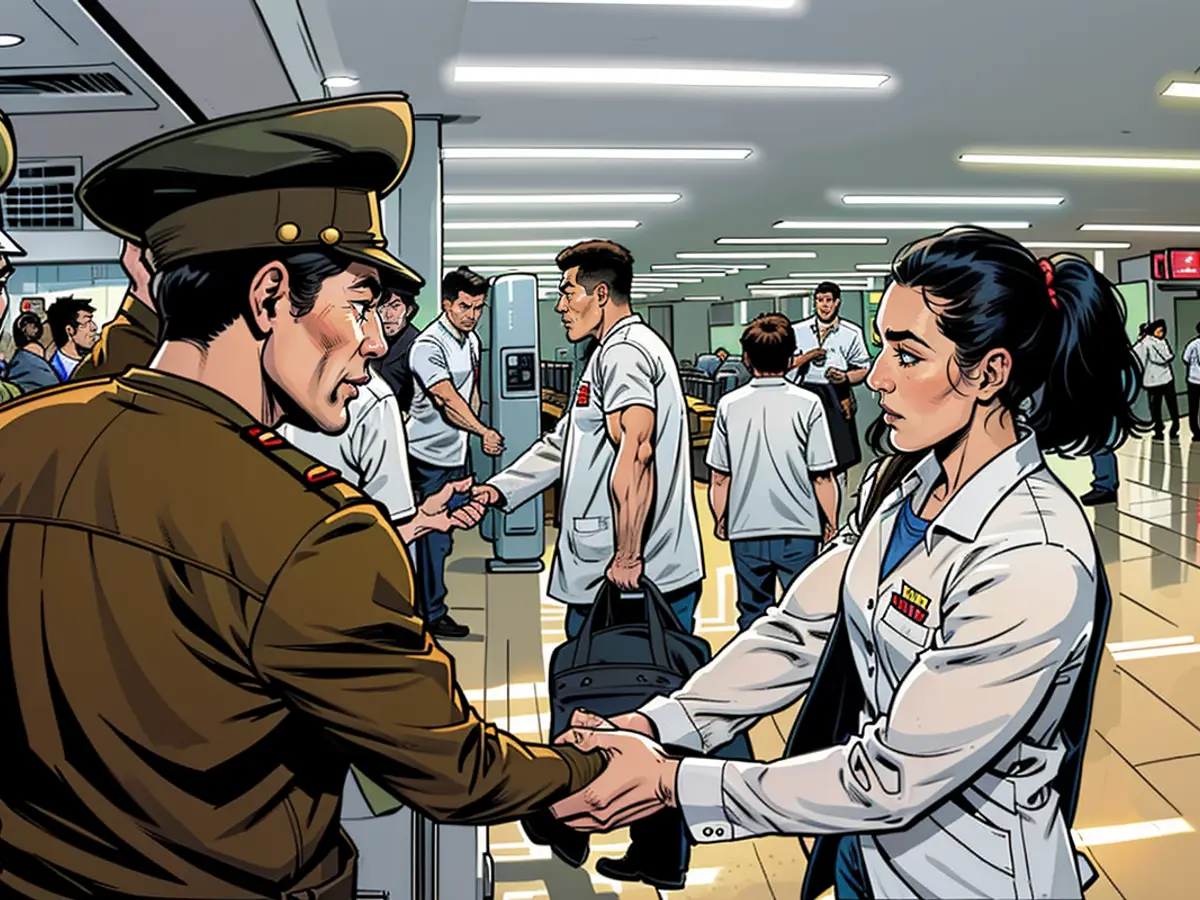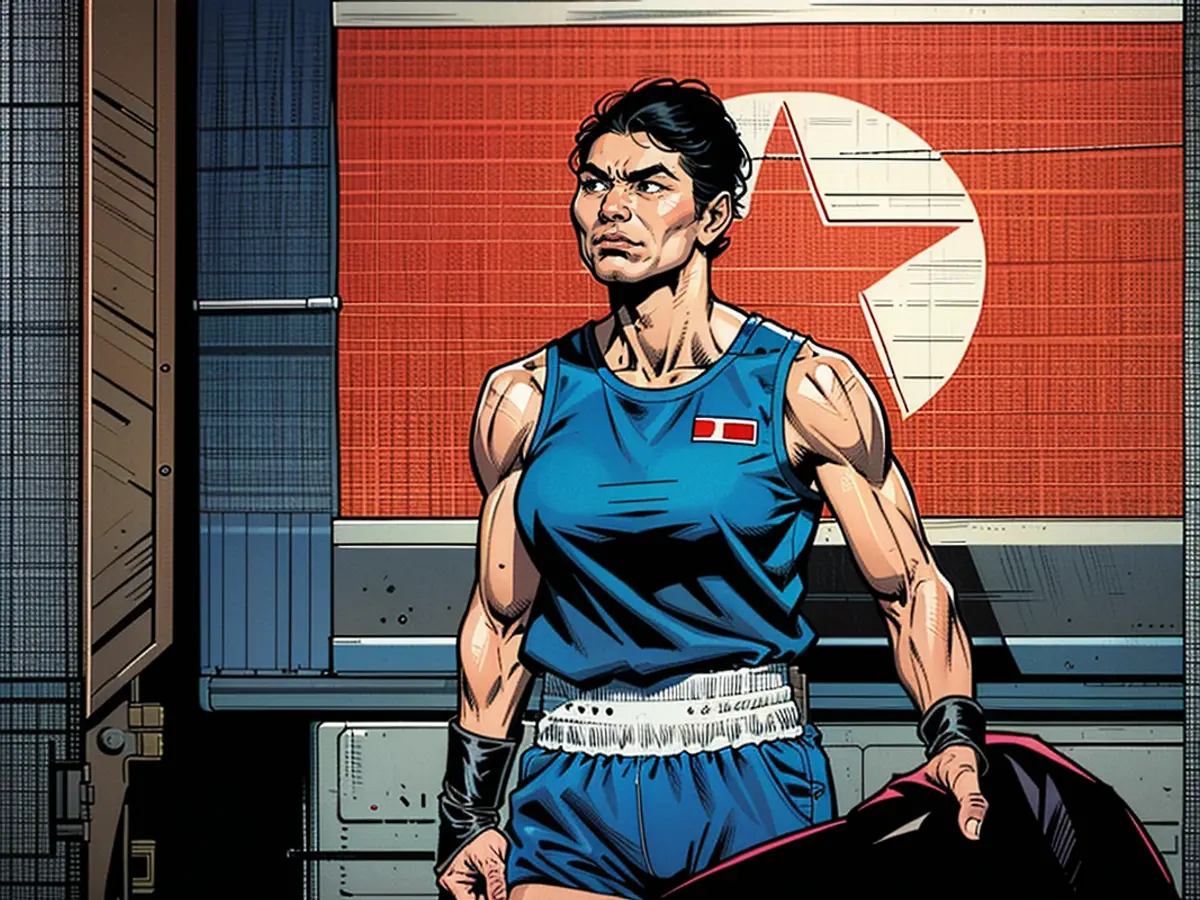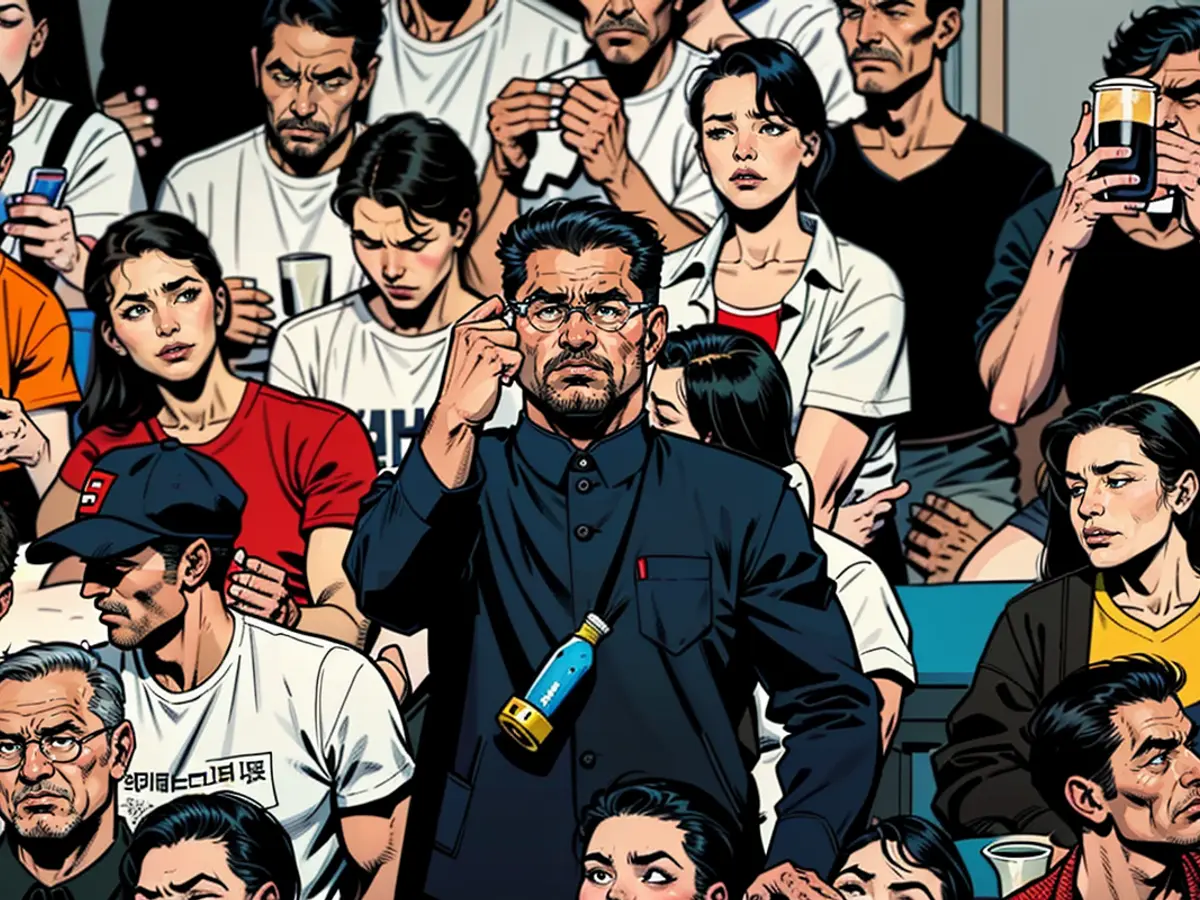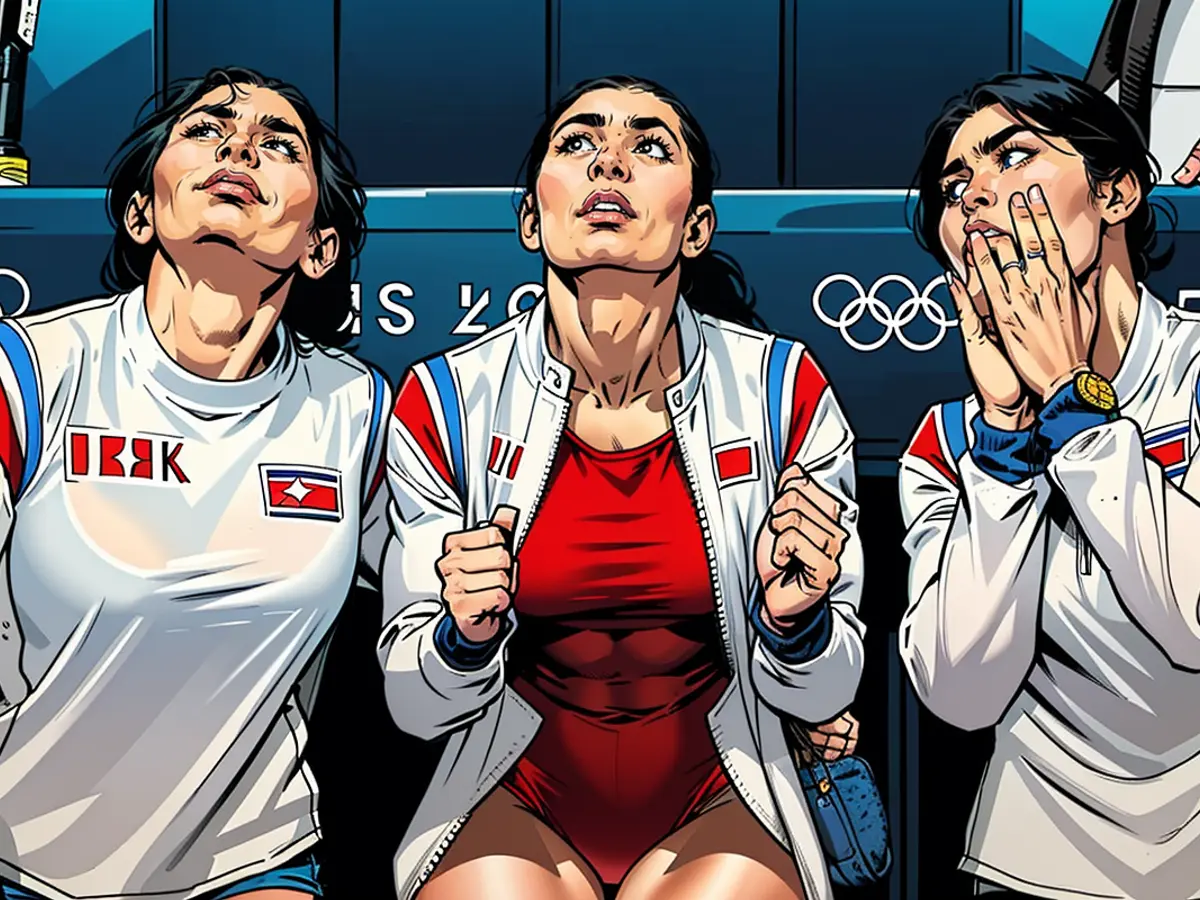North Koreans have a lot to lose at the Olympics
Due to the COVID-19 pandemic, North Korea has decided not to participate in the Tokyo Olympics. Consequently, the one-party state has been suspended by the IOC for the 2022 Winter Olympics in Beijing. However, in 2024, the isolated country will send 16 athletes to Paris, aiming to win medals for North Korea. A failure to do so could have significant implications.
The Sunan International Airport in Pyongyang, the capital of North Korea, was almost deserted when the North Korean delegation boarded a plane to Paris on July 20. The 16 athletes, dressed in white jackets with a North Korean national flag pin on the left lapel, have one goal: to win medals for North Korea at the Paris Olympics.
North Korea's participation in the Games signals a "remarkable" return to the international community, said Jean H. Lee, former AP North Korea correspondent, to the BBC. After the one-party state further isolated itself due to the COVID-19 pandemic, it decided not to participate in the Tokyo Olympics. In response, the International Olympic Committee (IOC) suspended the National Olympic Committee of North Korea until the end of 2022, also excluding the Asian country from the Winter Olympics in Beijing. However, North Korea is making efforts to reintegrate into the international community in Paris, Lee said.
The Foreign Office states that foreign influences are considered harmful and subversive in isolated North Korea. Therefore, the trip to the Olympics is special for the 16 North Korean athletes. North Korea's travel laws are very strict, with most of the population not even allowed to travel within the country, let alone leave without state permission. There is an exception: if a North Korean can achieve something significant for their nation, they may be allowed to travel abroad.
On a sports diplomatic mission in Paris
In addition to competing for medals, the North Korean athletes have another major goal in Paris. Trained in the ancient North Korean art of "sports diplomacy," they aim to prove to the world that their country is normal, said Ramon Pacheco Pardo, professor of international relations at King's College London, in the BBC. The athletes are viewed less suspiciously than other North Koreans by the outside world, Pacheco Pardo said.
"For North Korea, sport has always played a very political role. It is used as a tool for propaganda," said Lee Jung-Woo, a lecturer in sports politics at the University of Edinburgh, in the Deutschlandfunk. North Korea is nationally oriented when it comes to sporting successes, with the greatness of North Korea as a nation being emphasized rather than the individual achievements of the athletes. And at previous Olympic appearances, North Korea has almost always won several medals.
Ten events of the Paris Olympics have already taken place. North Korea is currently ranked 44th in the medal table: On Sunday, Pang Chol-mi won bronze in the women's boxing (up to 54 kg) class. Earlier, the divers Jo Jin Mi and Kim Mi Rae won silver in the women's 10m synchronized diving. The North Korean delegation won its first medal last Tuesday: Ri Jong Sik and his mixed doubles partner Kim Kum Yong also won silver in the mixed doubles table tennis.

At the awards ceremony, there was a major Olympic moment. Like all medal presentations, the winners posed for a selfie on the podium: Ri Jong Sik and Kim Kum Yong from North Korea posed alongside athletes from South Korea and China. According to the IOC, the "Victory Selfie" is an official part of the ceremony, capturing the crowning moment on the podium and showcasing a new Samsung smartphone, an Olympic partner.
Tensions between South Korea and its nuclear-armed neighbor are high. In January, North Korean leader Kim Jong-un labeled South Korea the "main enemy," and in February, North Korea severed all economic ties with South Korea. Recently, North Korea sent trash balloons across the border.
The selfie was one of the few visible interactions North Korea had with the outside world during the Games, including a press conference by the two table tennis stars. The podium selfie went viral as a rare sign of cross-border unity between the two rival nations.
A Selfie with Unforeseen Consequences
From afar, the North Korean government keeps an eye not only on the sporting performance of its delegates in Paris but also on their behavior abroad, particularly contacts with the West and South Korea. According to the BBC, 21-year-old gymnast An Chang-ok was even accompanied by a chaperone at the Bercy Arena.
How leader Kim Jong-un evaluated the selfie is unclear. According to the BBC, the Olympics are not being broadcast live on television in North Korea, with only a handful of reports about the Games in the tightly controlled state media. However, people in Pyongyang would learn about the Olympic results from one source or another, said John Everard, the British ambassador to North Korea from 2006 to 2008.
Whether the two North Koreans will be punished by the government for the selfie with the South Koreans remains to be seen, likely to be decided when the delegation returns to North Korea.

Punishment for Those Who Don't Bring Home a Medal?
After more than a month in Paris, the 16 athletes will return to North Korea. Upon their return, they will likely face a grueling "debriefing," according to Jean H. Lee in the BBC, to ensure the athletes stay grounded.
Gymnast An Chang-ok, table tennis player Pyon Song-gyong, and judoka Mun Song-hui are not expected to bring home any medals. BBC analysts do not anticipate that athletes returning without a medal will be punished.
However, defector Kang Ji-hyun has a different perspective. Athletes without sporting success could lose their jobs, she told the German radio station Deutschlandfunk, suggesting that the North Korean party is not generous towards losers. Only winning athletes are glorified. Kang Ji-hyun fled to South Korea over a decade and a half ago.
The former British ambassador to North Korea, Everard, tells the BBC what likely hits athletes the most, apart from penalties. They competed for their nation and failed. It's also the missed opportunity for rewards, which can be severe enough punishment for athletes. Successful athletes can gain higher social status and even prizes like a new house.
North Korean athletes can still hope for more medals. In the 10-meter platform diving, divers Kim Mi-rae and Im Yong-myong, wrestlers Kim Son-hyang, Choe Hyo-gyong, Mun Hyon-gyong, Pak Sol-gum, wrestler Ri Se-ung, and marathon runner Han Il-ryong could win more medals for North Korea in the coming days.
Despite the International Olympic Committee's suspension of North Korea for the 2022 Winter Olympics due to their absence in Tokyo, the North Korean conflict continued to impact their participation in international sports events. The one-party state aimed to demonstrate normalcy and boost its international image by sending 16 athletes to the Paris Olympics in 2024.
Furthermore, North Korean athletes are not only competing for medals but also acting as ambassadors, utilizing the ancient North Korean art of "sports diplomacy," to portray their country as a normal nation to the world. This was evident during the awards ceremony in the Paris Olympics, where North Korean athletes posed for a selfie with athletes from South Korea and China, marking a rare sign of cross-border unity.









